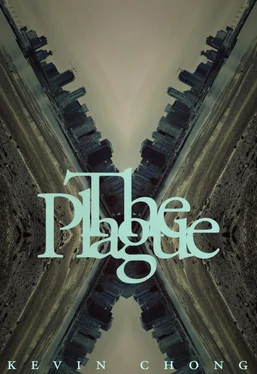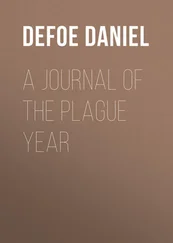Dear Megan Tso,
I apologize for our late reply. I apologize also for our simple English.
Thank you so much for sending to us the passport of our daughter, Yuko. The consulate official said you tried to help her when she became sick.
We thought you might want to know more about Yuko.
Yuko was our only daughter. She was twenty-two years old. She studied English for a year in the United Kingdom. She wanted to work for an airline and travel. She loved dogs.
We are very sad since she died. But we know that she lived a life that made her happy.
Thank you for reading this letter about our daughter.
Yuko’s Mother (and Father)
Tso’s hands trembled as she reread the note. She saw a girl running down the beach into the embrace of the person who made her.
_________
After being released on bail, Elliott Horne-Bough announced his latest venture with philanthropist and family friend Frederick Graham. Evermark™ would create luxury monuments for the ultra-rich, built to last a thousand years.
_________
“I think we should keep an eye on Farhad,” Grossman told Tso a few days after the reopening was announced. She had heard him screaming into the phone in his apartment.
The smuggling trade had not yet been affected. As inspection protocols remained in place, contraband was still required to meet the city’s more celebratory appetites for foie gras, champagne, and Atlantic lobster. But within a few weeks, his services would no longer be in demand.
It was Oishi’s move into Izzy Grossman’s apartment that prompted Khan’s next outburst. When he saw the judge outside the house with the moving van, he ran up to Grossman’s apartment, pounded his fists against her door, and demanded that she open it.
Tso, who had moved to Grossman’s couch until she left the city, was wearing her pyjamas when she cracked open the door. Khan slipped his foot in the crack and pried it open.
“What message are you trying to send to me, eh?” Khan asked. “Have I not been your friend? Why do you rent to that judge?” he asked. “Is there a reason why you’re torturing me?”
Grossman appeared a moment afterward. Khan shouted to her over Tso’s shoulder. He kept thumping his bare chest like an over-emotive singer.
Grossman didn’t know about Oishi’s connection to Khan. “He needed a place to stay,” she said.
He threw his hands in the air. “A man needs to feel like he’s at home. Not like he’s on trial.”
He stomped back into his apartment. When they heard glass breaking and other noises, Grossman called the police. Khan stormed out before they arrived. Grossman prepared an eviction notice for him, but he never bothered to pick it up. He never returned to the apartment.
A few days before the quarantine was lifted, one of Gastown Annex’s newest condo projects, set to cast the rest of the block in its shadow, was set ablaze. Police and firefighters found Khan sitting on the curb with two tanks of gasoline.
The damages to the stone and steel foundations were superficial, yet the developers wanted Khan punished severely. Later that year, when Khan stood in the courtroom for his sentencing, he swayed back and forth until his lawyer asked him to stop. He dutifully answered the questions that the judge asked him but otherwise looked swept up in his own private music. He seemed disappointed that his prison sentence wasn’t longer.
When the reopening was announced, Rieux booked a ticket back to Hong Kong for his mother. Mrs Rieux had begun to sigh at the pictures of her growing grandchildren recently sent by his sister. She had been here too long. “I imagine Elyse will be home soon,” she told him. “I don’t want to get in her way.”
Rieux resolved to spend more time with his mother now that an end-date to her visit came into sight. She was at the age when any visit could be her last and he would only be able to see her in Hong Kong, where he found it difficult to breathe in the smog and heat.
He received two tickets from the Cantonese Opera troupe. The actress whom Rieux had attended to had recovered and regained her strength. To celebrate their imminent departure and to show their appreciation to the city, the company would stage a farewell performance before they travelled home to China. Rieux and his mother were invited backstage afterward.
“Once was enough,” Mrs Rieux said. “You don’t even like the opera!”
“It was my fault. I didn’t put in the time to understand it,” he explained. “I read about this one.”
She nodded. She wanted to go. “Thank you, Bernard,” she said.
The performance took place in the same theatre, but this time the house was full. Since the reopening had been announced, pedestrians filled the streets to the curb and passengers on buses stood shoulder-to-shoulder. People behaved as though they were already free. Rieux was reminded of visiting less temperate Canadian cities in the spring and seeing shirtless joggers running alongside towering snowbanks that had only begun to thaw. Vancouverites would have looked the same way to outsiders: like maniacs.
He flipped through the program. The original version of The Peony Pavilion, written at the end of the sixteenth century, consisted of fifty-five scenes and took days to perform. This popular adaptation, which featured eight scenes, lasted only for an evening.
The lights dimmed on a stage that was made to look like a garden. The actress he had treated stood in the green light. Her cheekbones seemed to jut out more noticeably, but it was hard to tell in her makeup. She played the lead character, a young woman named Du Liniang, and was followed onto the stage by another woman, who played her maid. To Rieux’s relief, this performance was subtitled.
Du Liniang comes from a wealthy family, which confines her to the estate and the manicured gardens that surround it to preserve her innocence. In her boredom and sadness, she wanders outside and falls asleep. In a dream she meets a man named Liu Mengmei, who convinces her that they are destined to fall in love. She wakes up from her dream, dismayed it wasn’t real. In her despair, she wastes away and dies.
Three years later, a scholar stops at a temple to get away from a snowstorm. He presents an offering to a painting of a young woman. He sees his own name, Liu Mengmei, within the poem that accompanies the portrait.
Du Liniang’s ghost appears. She tells him about their fated love and instructs him to unearth her tomb. The god of the underworld has allowed her to return to life and re-unite with her lover. Since it is a comic opera, they must succeed in proving to everyone—the cemetery custodians, her parents, the Emperor—that he is not a graverobber and she is not a ghost. And that they belong together.
Rieux’s mother was again stirred and delighted. The story was a comedy along Renaissance lines: not a lot of yuks, but an expression of vitality. Life has more good parts than bad ones … let’s end this story on a high note.
Mrs Rieux sang along to the songs—audibly. She did not even feign resistance when he suggested they go backstage. Once there, she clung to her son’s side as they waited to congratulate the performers. She offered the same crooked smiled she used when she’d met the parents of Rieux’s classmates and was embarrassed to speak in English. One actress noticed a trace of an accent in her Cantonese and asked her about her family’s hometown. “We come from the same village!” the actress gasped.
The doctor’s mother sighed contentedly during the drive home. As a child, Rieux often discovered her asleep on the couch, her arms cinched around a pillow that he always imagined to be a stand-in for his father. It was a fanciful notion. His mother hardly talked about her husband. It seemed difficult to imagine how deeply his parents had fallen in love when they could barely speak the same language.
Читать дальше












